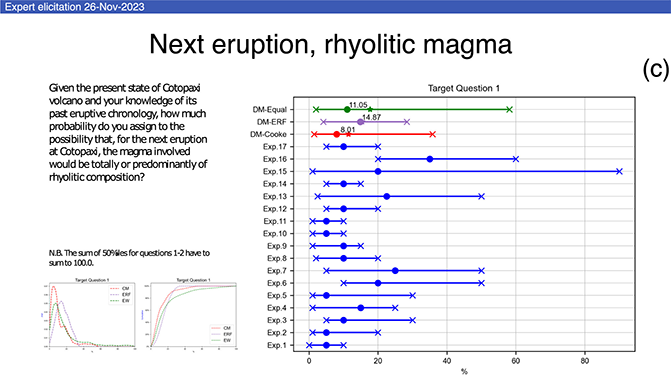ELICIPY 1.0: A Python online tool for expert elicitation

de’ Michieli Vitturi M., A. Bevilacqua, A. Tadini, A. Neri (2024).
SoftwareX, 25. https://doi.org/10.1016/j.softx.2024.101641
Abstract
Structured expert judgment is crucial when dealing with significant epistemic and aleatoric uncertainties, particularly in probabilistic hazard assessments, where decisions based on uncertain information are often critical. In structured expert elicitations, participants are asked to quantify their uncertainty judgments by providing their percentile estimates of numerical values for a set of questions. More specifically, performance-based elicitations start with “seed” questions for determining experts’ uncertainty quantification skill. The performance scores are thus used to define each expert’s weight to be applied when considering their judgments on “target” questions, i.e., the actual variables of interest for the case study. In this paper we describe ELICIPY, a new Python tool which allows to perform expert elicitation sessions in a framework that covers both the questionnaire collection and the analysis parts, an approach that simplifies the work normally done by the analyst(s). This is achieved through the automatic generation of online webforms to collect the experts’ answers, their check for consistency and, finally, their analysis using different weighting schemes. The tool automatically produces outputs in different formats and creates a pptx presentation file available just after the collection of the answers.



Devi effettuare l'accesso per postare un commento.